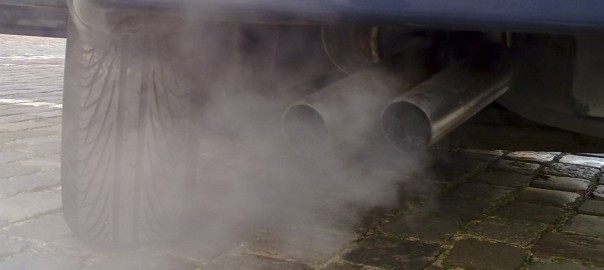Nottingham could become a pioneer of fume-free electric transport thanks to recent innovations and grants.
A low-emission zone in Nottingham city centre is at the heart of proposals to encourage electric cars and improve the urban environment.
Under the plan, which would also mean the creation of a city-wide electric charger network, there could be fines for vehicles entering the city centre and failing to meet emission thresholds.
But there is no need for private drivers to panic.
A Nottingham City Council official confirmed to the Post that the targets would be buses, taxis, heavy goods vehicles and large goods vehicles.
“How we measure emissions is still up for consideration,” she said. “We will be looking at how other cities deal with it.”
The proposals will be part of Nottingham’s bid for a chunk of the £35 million the Government is making available through its Go Ultra Low initiative.
Nottingham is one of 12 cities selected to make a detailed bid and up to four winners will be named in the autumn.
Features of the city council plan include…
- A low-emission zone in the city centre and a city-wide network of electric vehicle charging points.
- A scheme to encourage local businesses to use low-emission vehicles, including grants.
- Incentives for the public to rent electric cars in the City Car Cub fleet – an alternative to car ownership.
Councillor Jane Urquhart, portfolio holder for transport and planning at the council, said:
“After getting over this hurdle, the city council now has the chance to develop its electric vehicle vision further.
“At the heart of this is providing a comprehensive network of charging points for both residents and businesses to use.
“Making the city centre a low-emission zone would improve air quality and make the environment there much better.
“The introduction of electric City Cycles and Car Club vehicles will give people access to low-emission vehicles and we propose to develop a demonstration site so that residents and businesses can see that switching to low-carbon transport is easier than they might think.
“The city council will work with local energy suppliers to see how locally-generated electricity can be used to power our electric transport vision.”
The Go Ultra Low bid comes at a time when quiet, clean, electric-powered travel is getting a higher local profile.
Greater Nottingham’s second and third tram routes will open this summer, improving public transport in the western and southern suburbs.
At least one private hire firm is running all-electric cabs – DG Cars has added Nissan Leaf cabs to a fleet that also includes more than 90 hybrid vehicles.
“Nottingham is aspiring to be one of the greenest cities in the UK,” director Ian Pole said at the time of the purchase, “and this is the way we feel the transport industry should be going.”
Aside from trams and electric cars, Nottingham is making headlines with electric buses.
In the Linkbus service the city already has the largest electric bus fleet in Europe.
Now it is set to have the UK’s first all-electric park-and-ride service (see panel).
One of the inhibitors to the growth of electric car ownership has been the patchy provision of top-up charging points.
If Nottingham gets a share of the Go Ultra Low cash, part of it will be used to create charging units at both the Victoria and Broadmarsh centres, Eastcroft Depot, park-and-ride sites, city council and hospital car parks, Car Club bays and Nottingham and Bulwell stations.
The ideas is that a reliable network could incentivise business and private buyers to think electric when it is time to replace their vehicles.
There would be investment in electric bikes and in more electric vehicles in the Car Club project.
The city and county councils say they are committed to getting more ULEVs (ultra low-emission vehicles) in their fleets.
“Nottingham is in the process of setting up its own local energy company,” said a city council spokesman, “and as part of these arrangements we will work in partnership with local energy partners and suppliers to explore local energy generation and consider the potential impacts on grid capacity and any necessary mitigation to cope with local supply to support an electric transport system.”
He said the proposals, taken as a whole,
“would show a plan to encourage smarter travel options, making electric vehicles easier to use for domestic and business purposes”.
At the AA, Paul Watters said:
“The internal combustion engine is going to be here for a long time as a mainstream power source.
“The cost of purchase of electric vehicles will still be a factor for many people, even after the £5,000 grant.”
The Government is guaranteeing conditional £5,000 grants towards the private purchase of the first 50,000 plug-in cars.
Some 25,000 grants have already been made.
Source: Nottingham Post
